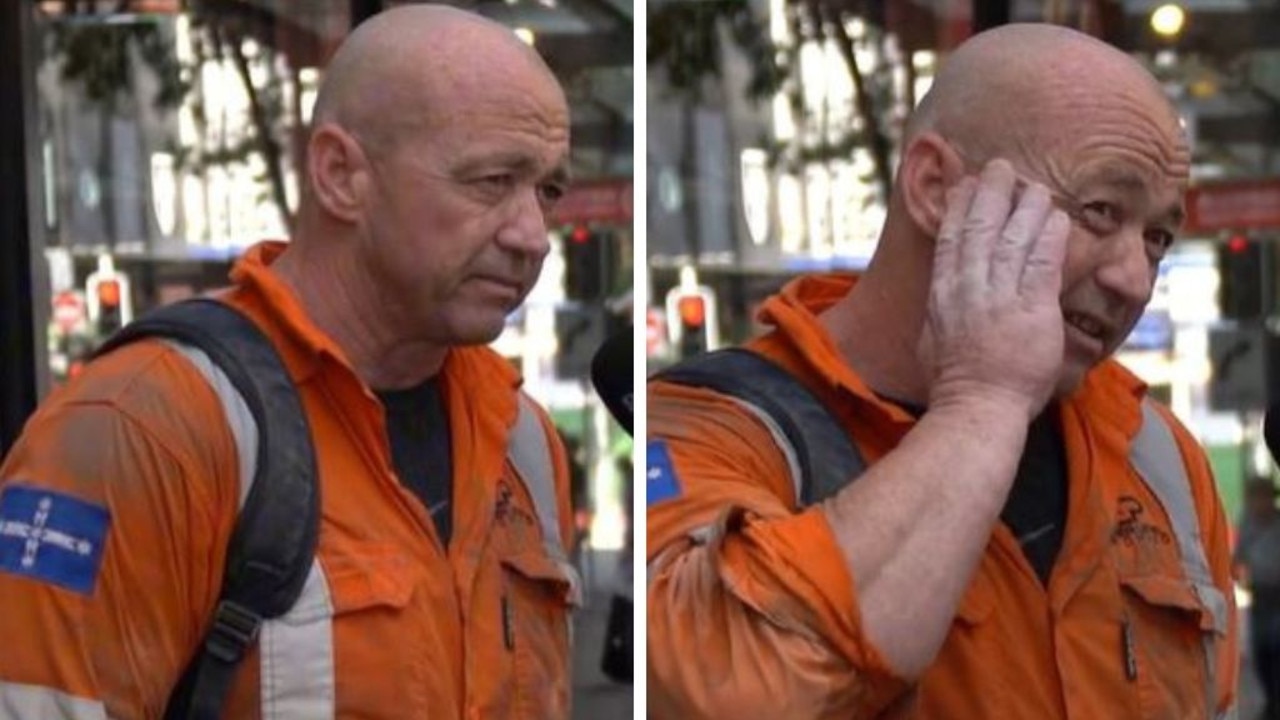How economic uncertainty will affect the job market
Record numbers of Australians are changing their jobs in search of better pay and more flexibility. But one expert says there’s a good reason not to.
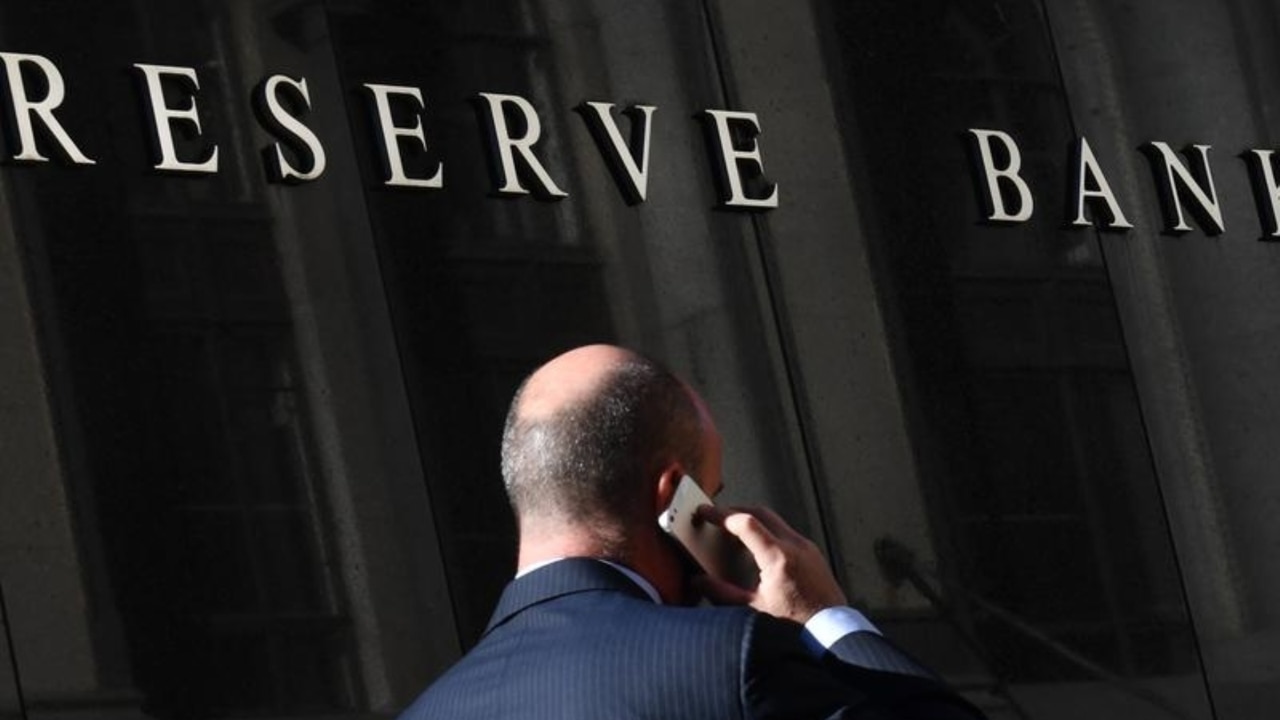
At Work
Don't miss out on the headlines from At Work. Followed categories will be added to My News.
Record numbers of Australians have been leaving their jobs in search of greener pastures – dubbed our own ‘Great Resignation’ - but is the tide about to turn?
Rising inflation is sending the cost of living skyrocketing, and rising interest rates, brought in to try and tame the rate of inflation, is putting extra pressure on homeowners.
In another ominous sign, Treasurer Jim Chalmers has warned next week he’ll be delivering a “confronting” economic statement to the Parliament.
Dr Geni Dechter, an expert in labour economics and a senior lecturer at UNSW, explained as economic uncertainty grows, the number of people moving between jobs (job mobility) will likely stabilise and people will be less likely to quit altogether.
“When there is uncertainty, people tend to keep their jobs because there is some kind of (perceived) principle: last in, first out,” she told news.com.au.
“If you’re the last one to join the company, you’ll have the least training accumulated, least experience in the new job, you’re the least costly person to fire.
“From that perspective, when we’re in a recession that’s one of the reasons people keep to their jobs and don’t want to move.”
Want a streaming service dedicated to news? Flash lets you stream 25+ news channels in 1 place. New to Flash? Try 1 month free. Offer ends 31 October, 2022 >
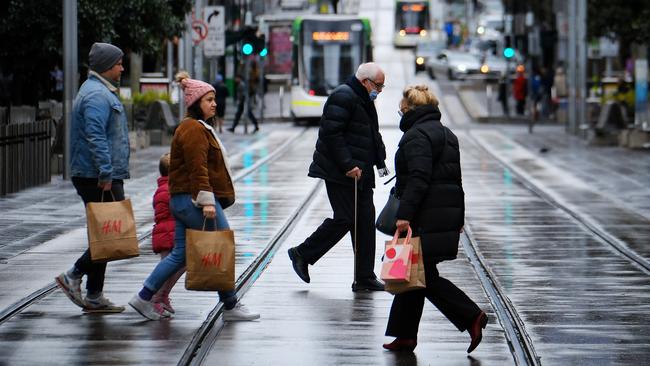
The latest data from the Australian Bureau of Statistics showed almost 10 per cent of the Australian workforce quit their jobs in the 12 months to February – a whopping 1.3 million people. It was the biggest number since 2012.
CommSec senior economist Ryan Felsman said 644,300 Australians either changed their jobs or sought a new position, seeking more fulfilling, higher paying, or more flexible work arrangements in May. That was just under November’s record-high 709,500.
“The data suggests that Australia’s own version of the ‘Great Resignation’ is well under way, with the pandemic likely contributing to a change in worker behaviours and preferences,” he said in June.
However, there is a big question mark over how long it will last given the current economic situation.
Dr Dechter said it was hard to say how long the low unemployment rate – creating a workers’ job market – would continue, but it was “unsustainable”.
“Right now it’s hard to find workers, there are real shortages going on in the labour market,” she said. “If the RBA starts increasing interest rates more aggressively, it is very likely that there will be in some way economic downturn and unemployment will increase.”
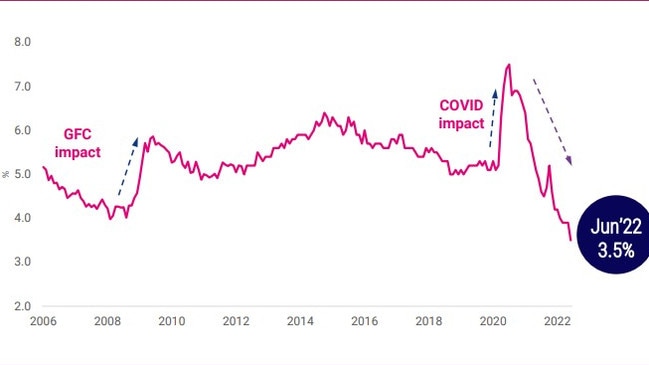
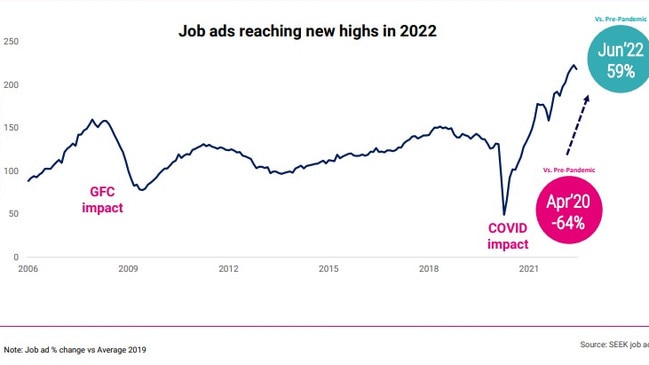
It is unknown when the unemployment rate will increase, but Seek senior economist Matt Cowgill expects there will still be plenty of opportunities in the next 12 months for job seekers.
“There’s a lot of economic uncertainty around, but forecasters including the Reserve Bank do expect that unemployment will remain low over the next year … the mid to high 3 per cent range, which is extremely low,” he told news.com.au.
“If unemployment remains low we will expect to see job ads remain high as well.”
However, no one can be certain.
“There’s a lot of speculation about an imminent recession or imminent economic difficulties, that’s always possible. You can’t rule it out. No one knows what’s going to happen in the future but that’s not the central expectation of forecasters at the moment,” Mr Cowgill said.
“It’s not the expectation that unemployment will rise significantly in the year ahead.”
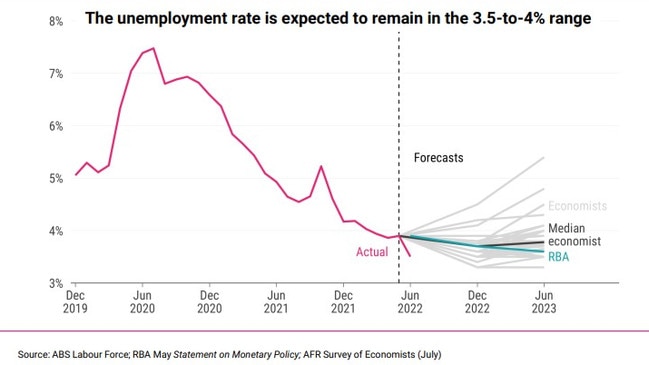
While some people will be choosing to stay put in their current jobs due to economic uncertainty, it is likely others will seek out a new job to try and get a better wage.
“Certainly the cost of living is front of mind for a lot of people,” Mr Cowgill said.
“The Reserve Bank expects inflation to hit seven per cent over this calendar year, which is really high, so I do expect people will be trying to figure out how they can make their household budgets work and for a lot of people that will be looking for a higher paying job.”
Seek managing director Kendra Banks does not agree Australia has seen its own ‘Great Resignation’ or ‘Great Reshuffle’, as she believes they would have seen a dramatic increase in visitors to the website.
In a presentation on Thursday, she noted that job mobility was on the rise, but was still at relatively modest levels when looking at historical data.
The company prefer to call the current labour situation the “Great Job Boom”.
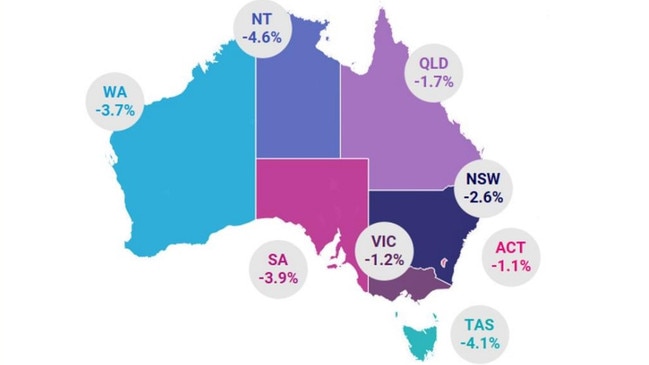
The number of job ads on Seek fell 2.1 per cent in June, the first time this year, but they still remain 52.4 per cent higher than the same time in 2019 - before the pandemic began.
Every state and territory recorded a drop in job ads from May to June, the first time they have all done so since the start of the pandemic. They are all up year on year.
Ms Banks said it was too early to speculate whether this month’s drop represents the beginning of a slowdown in the Great Job Boom because job ads remained extremely high compared to pre-pandemic levels.
Originally published as How economic uncertainty will affect the job market




